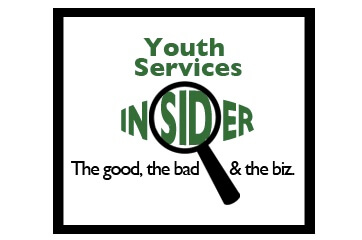Youth Services Insider got our hands on a study out of North Carolina State University about a disturbing pattern in the diagnosis of Attention Deficit Hyperactivity Disorder.
According to research done on ADHD diagnosing and medicating trends between 2003 and 2012, some children are mistakenly diagnosed with the condition because it represents a financial boon to school districts.
 Study author Melinda Morrill took states and placed them into two groups: ones where the school districts had a fiscal incentive to diagnose ADHD, and ones where that incentive did not exist.
Study author Melinda Morrill took states and placed them into two groups: ones where the school districts had a fiscal incentive to diagnose ADHD, and ones where that incentive did not exist.
And to be clear, she isn’t talking about “incentive” in the sense of an intentional push to action, like the federal adoption incentive. This is an unintentional incentive that unfolds in the following way:
1. States have nothing to do with the diagnosis of ADHD.
2. School officials frequently are part of decisions to diagnose ADHD.
3. The state contributes to special education in districts based on the number of kids who qualify for those services.
There are 34 states whose funding process creates this incentive, according to Morrill’s research.
What Morrill found convinces her that some portion of ADHD diagnoses are motivated by the potential for cash, not psychiatric evidence of the difficult-to-pinpoint condition. From her findings:
Using variation in special education funding policies across states, we find that children living in states with financial incentives are about 15 percent more likely to report having ADHD and are about 22 percent more likely to be taking medication for ADHD.
We confirm these findings using fixed effects and synthetic control methods focusing on two states experiencing a policy change over the time period studied.
Morrill also noted that between 2003 and 2012, two states – New Jersey and West Virginia – moved away from a system that financially rewarded more diagnoses. In both states, the percent of youth diagnosed and medicated for ADHD went down.
Her conclusion:
This study finds evidence of systematic differences in diagnosis and treatment of ADHD due to third party financial incentives that are unrelated to disease prevalence or severity. In some states, due to the financing mechanism for special education, schools face a financial incentive to encourage and facilitate the identification of children as having ADHD.
Click here to read the study. It should be of interest to anyone involved in either child welfare or juvenile justice, as youth who touch either or both systems are disproportionately diagnosed with ADHD and a whole host of other behavioral and mental health challenges.
But there is a broader issue that this study speaks to, in Youth Services Insider’s humble opinion. And that is the extent to which unintentional financial incentives can lead to well-intentioned mishandling of youth, especially when it comes to mental health.
We’ll give school districts as a nebulous community the benefit of the doubt and say that they do not have an end goal of contributing to misdiagnoses of ADHD. They are all responsible for providing special education services, and those have to be paid for.
So it might be easy to rationalize liberal diagnosing of some ADHD for the greater good of having more funds to serve all of the special education students, many of whom have conditions that require more complex and expensive services on the part of schools.
The problem there is that Joe Student who just got diagnosed with ADHD he doesn’t have might have a totally different life because of it. He might get started on powerful drugs with tough side effects. He might be placed on an academic track that stunts his capacity for growth.
This would actually be a great avenue of exploration for some research-minded funder: some commission or project that just identified (and perhaps recommended solutions to address) well-intentioned perverse incentives.
By John Kelly
Written By Chronicle Of Social Change
School Cash-for-ADHD Study: A Jarring Reminder to Be Wary of Unintentional Incentives was originally published @ The Chronicle of Social Change and has been syndicated with permission.
Sources:
Our authors want to hear from you! Click to leave a comment
Related Posts







